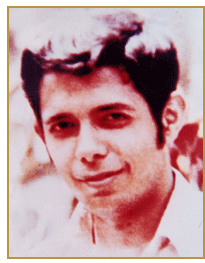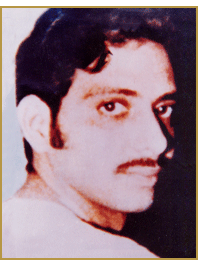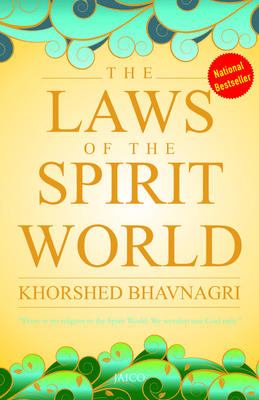1980 was the year when Khorshed and Rumi Bhavnagri, a Parsi couple living in Mumbai lost their two young sons Vispi and Ratoo in a freak, automobile accident. In the absolute heart of darkness, they stumbled upon, what to them became a new lease of life. They were facilitated by a strange turn of circumstances to ‘communicate’ with their departed sons who gave them startling insights into the afterlife.
An entire book was ‘dictated’ to Khorshed and the result was the rather intriguing and occasionally frightening national bestseller, The Laws of The Spirit World.
Proving once again that books have a way of finding those who are meant to write them. In the same year, many continents away, a traditional psychotherapist, Dr. Brian Weiss too stumbled upon the story that was maybe, looking for him. During a routine hypnotherapy session, one of his patients regressed back to past lives and began to channel ‘masters’ or evolved spirits.She even shared revelations about Dr. Weiss’ dead son that no one could have had access to. Her sessions and what followed resulted in the global bestseller, Many Lives, Many Masters.
**
Both the books in a way try to demystify death and give meaning to what we believe is the randomness of life. Both books try to answer why we are born and what we are here to do. And both say that on earth we come to clear past life residues of pain, anger, grief and trauma and to heal and to learn how to overcome emotional blocks that limit our potential for joy and love. It is simple, we are told, the business of life. Get over fear, hate, ego and sorrow. Learn that this is all transient. Where we are, who we are, what we are feeling, what we think we are entitled to, what we cling to, what we let go.
**
Nothing is permanent except love. Love that extends to all of life and that we give to each other and to ourselves. Sounds simple enough but just one glance at the world around is enough to show that we rarely if ever love unconditionally. Seldom are we motivated by an unselfish desire to share our light, our resources, our laughter and our gifts with others. And The Laws of the Spirit World talks about the seven realms up there somewhere where souls with varying degrees of evolution land up to learn or to teach. The book talks about how impediments like pride, ego, negativity, anger. greed slow human evolution, tilting the balance of the world towards chaos.
**
There are ‘case studies’ and counter arguments to suicides and the human tendency to not listen to the subconscious mind which is supposedly the big, little voice waiting to be heard by all of us.

Both the books have a conviction that goes beyond our ideas of god and atheism, of tangible reality and the unseen. They are written in a voice that we recognise at times because we have felt stirrings within us of questions no one seems to be able to answer. What is Karma? Why do the supposedly good souls suffer? Why do the young die? How does one deal with loss, with setbacks, with pain and suffering?
**
Both the books answer these questions to some extent though their purpose seems to be to not convert the disbelievers but to handhold the believers and flag them off with a road map on a spiritual journey. What we find along the way or not, is another story.
 with The New Indian Express
with The New Indian Express
Reema Moudgil works for The New Indian Express, Bangalore, is the author of Perfect Eight, the editor of Chicken Soup for the Soul-Indian Women, an artist, a former RJ and a mother. She dreams of a cottage of her own that opens to a garden and where she can write more books, paint, listen to music and just be silent with her cats.










 with
with